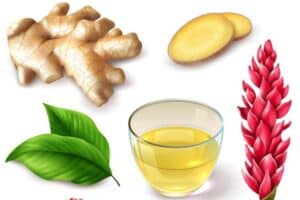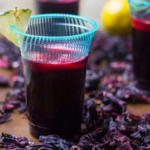
![]() Ginika Oluchi okekehealthcareSeptember 10, 2025
Ginika Oluchi okekehealthcareSeptember 10, 2025
In Nigeria and around the world, many women search for quick remedies to prevent pregnancy after unprotected sex.
One of the most common questions is:
“What can I drink immediately after sex to avoid getting pregnant?”
From hot water to lime juice, salt water, alcohol, or herbal mixtures, various suggestions circulate among friends, family, and social media.
These suggestions often come from older relatives, friends, or cultural traditions, and they’re usually shared with good intentions. But how true are they? In this article, we’ll take a closer look at some of the most popular “after sex drinks,” why people believe in them, and what medical science says about their effectiveness.
Lime and lemon are acidic, and acids can kill
asperm outside the body. This belief is partly supported by laboratory studies, where lemon juice and certain citrus drinks have been shown to immobilize sperm under controlled conditions.
A Nigerian study also reported that Bitter Lemon drink had spermicidal effects in the lab. Because of these findings,some people believe that washing the vagina with lemon juice right after sex could stop pregnancy
In reality, sperm begin moving from the semen into the cervix within 1.5 minutes after ejaculation, making it unlikely that any douche could reach and stop all of them in time. No published study has proven that using lemon juice internally after sex actually prevents pregnancy.
Research among Nigerian female sex workers found that those who practiced vaginal douching with citrus juice had a higher risk of cervical dysplasia,which is an abnormal change in cervical cells that can lead to cancer, possibly due to tissue damage caused by the acidity.

Some women believe that drinking a mixture of salt and water immediately after sex will “flush out” sperm or prevent conception. This belief is rooted in the idea that salt can somehow disrupt the reproductive process.
In reality, no scientific evidence supports this claim. Drinking salt water will not stop sperm from reaching the egg or prevent implantation. Instead, consuming high amounts of salt can raise your blood pressure, cause dehydration, and put unnecessary strain on your kidneys. In severe cases, excessive salt intake can even be life-threatening.
Health experts strongly advise against using salt and water as a method of contraception. It is neither safe nor effective.
Neem is a medicinal plant widely used in Asia and Africa.Some studies on animals have suggested that neem extracts can reduce sperm
count or motility, and in some cases, may affect implantation. Because of this, some people believe that drinking neem tea or juice after sex can prevent pregnancy.
However, there are two major problems:
1. The evidence in humans is not conclusive, no large, reliable study has proven that neem can actually prevent pregnancy in women.
2. High doses of neem can be toxic, leading to liver enlargement, kidney damage, and autoimmune issues.
So while neem may have medicinal uses, it is not a proven emergency contraceptive and should not be relied upon for birth control.

Ginger is often promoted as a “natural period inducer,” with claims that it can trigger uterine contractions and prevent implantation if taken soon after sex. People typically prepare strong ginger tea by boiling crushed or grated ginger in water and drinking it twice a day.
While ginger can help relieve menstrual cramps and improve digestion, no credible study has shown that it can prevent pregnancy. Using ginger tea as a contraceptive is based on traditional belief rather than medical evidence.
Parsley contains a compound called apiole, which is believed to stimulate the uterus and cause contractions. This has led to claims that parsley tea can prevent pregnancy or cause early miscarriage if taken after unprotected sex.
But medical research warns that consuming large amounts of parsley, especially concentrated extracts, can be dangerous, leading to liver and kidney damage. Like other herbal remedies on this list, parsley tea has no proven contraceptive effect and should not be considered a safe alternative to medical birth control.
This over-the-counter powder is meant to relieve indigestion and constipation. Some women believe that drinking Andrews liver salt after sex can prevent pregnancy.
The truth? Andrews Liver Salt has no effect on sperm, ovulation, or implantation. It simply acts as an antacid or laxative and is completely ineffective as a form of birth control.
A mixture of lime juice and potash (potassium carbonate) is another traditional remedy some people take after sex. The idea is that the combination will “neutralize” sperm or prevent conception.
In reality, there’s no scientific basis for this. Instead, consuming potash can damage your digestive system, irritate the throat, and cause serious kidney problems over time.
A research carried out showed that some women take in ampiclox as a contraceptive to prevent pregnancy.Some people believe taking antibiotics such as Ampiclox after unprotected sex can “clear” sperm and stop pregnancy. This is completely false. Ampiclox is meant for treating bacterial infections and has no effect on sperm or fertilization.
Using antibiotics for this purpose is not only ineffective but also dangerous. Misusing Ampiclox can lead to antibiotic resistance, meaning the medicine may stop working when you actually need it for an infection.
Plus, combining it with other random drugs like Andrews Liver Salts won’t make it work as a contraceptive.
Some people believe that drinking Coca-Cola mixed with aspirin after sex can “flush out” sperm and prevent pregnancy. In parts of Africa, including Angola, and even in some communities abroad, this unusual combination has been passed around as a secret contraceptive tip.
However, there’s no scientific backing to prove this claim.Coca-Cola is simply a sugary, acidic drink,it cannot stop sperm that has already entered the reproductive tract. Aspirin, on the other hand, is a painkiller and anti-inflammatory drug, not a contraceptive. Taking both together may upset your stomach, cause irritation, or even lead to internal complications if taken in high doses.
Some people have even tried using Coca-Cola as a vaginal wash after sex, but this is risky and unnecessary. The acidity and sugar can disrupt the vagina’s natural balance, making infections more likely.
Some additional drinks and remedies people use like high-dose vitamin C, cinnamon tea, papaya, pineapple, apple cider vinegar douching are all ineffective for preventing pregnancy.
Some can even be harmful to your reproductive health or overall wellbeing.

Can salt and water prevent pregnancy after sex?
No. Using salt and water after sex does not prevent pregnancy. There is no medical or scientific proof that this method works, and it should not be relied upon as a form of contraception.
Can hot water prevent pregnancy after sex?
No. Drinking or bathing with hot water after sex cannot wash away sperm. Once sperm enters the cervix, water has no effect.
Does drinking alcohol after sex stop pregnancy?
No. Alcohol may make you feel dizzy or drunk, but it has no ability to kill sperm or prevent pregnancy.
Can bitter kola or herbal mixtures prevent pregnancy?
No. Bitter kola and local herbs may have cultural uses, but there is no scientific proof that they prevent pregnancy after sex.
Is it true that milk or malt and milk after sex can flush out sperm?
No. Malt or milk only nourishes the body. It cannot remove sperm or act as birth control.
Can antibiotics (like ampiclox or flagyl) prevent pregnancy after sex?
No. Antibiotics are for treating infections. They do not work against sperm or pregnancy.
Can urinating or bathing immediately after sex stop pregnancy?
No. Urinating only clears the bladder, not the uterus. Bathing also cannot reach the sperm that has already moved inside.
What happens if I take paracetamol or aspirin after sex, does it work like birth control?
No. Painkillers like paracetamol or aspirin only reduce pain or fever. They cannot prevent pregnancy.
No homemade drink taken after sex has been proven to prevent pregnancy. In most cases, sperm can reach the egg within minutes, making these remedies ineffective.
The only proven way to prevent pregnancy after unprotected sex is to use emergency contraception pills like Postinor-2, Postpill,copper IUD inserted by a healthcare professional or other WHO-approved methods as soon as possible.
1. Ajayi, A. I., Nwokocha, E. et.al (2016). Use of non-emergency contraceptive pills and concoctions as emergency contraception among Nigerian university students: Results of a qualitative study. BMC Public Health, 16, Article 1046. [https://bmcpublichealth.biomedcentral.com/articles/10.1186/s12889-016-3707-4](https://bmcpublichealth.biomedcentral.com/articles/10.1186/s12889-016-3707-4)
2. Martino, J. L., & Vermund, S. H. (2002). Vaginal douching: Evidence for risks or benefits to women’s health. Epidemiologic Reviews, 24(2), 109–124. [https://pmc.ncbi.nlm.nih.gov/articles/PMC2567125/](https://pmc.ncbi.nlm.nih.gov/articles/PMC2567125/)
3. Mahajan, G. K., Mahajan, R.et al. (2015). Improvement of sperm density in neem-oil induced infertile male albino rats by Ipomoea digitata Linn. Journal of Intercultural Ethnopharmacology, 4(2), 125–128. [https://pmc.ncbi.nlm.nih.gov/articles/PMC4566777/](https://pmc.ncbi.nlm.nih.gov/articles/PMC4566777/)
4. Negi, R., Sharma, S. K., Gaur, R., Bahadur, A., & Jelly, P. (2021). Efficacy of ginger in the treatment of primary dysmenorrhea: A systematic review and meta-analysis. Cureus, 13(3), e13743. [https://pmc.ncbi.nlm.nih.gov/articles/PMC8021506/](https://pmc.ncbi.nlm.nih.gov/articles/PMC8021506/)
5. ScienceDirect. (n.d.). Apiol – overview. In Topics in Medicine and Dentistry. Retrieved August 16, 2025, from [https://www.sciencedirect.com/topics/medicine-and-dentistry/apiol](https://www.sciencedirect.com/topics/medicine-and-dentistry/apiol)
6. Alobaidi, S. (2024). Renal health benefits and therapeutic effects of parsley (Petroselinum crispum): A review. Frontiers in Medicine, 11, Article 1494740. [https://pmc.ncbi.nlm.nih.gov/articles/PMC11672790/](https://pmc.ncbi.nlm.nih.gov/articles/PMC11672790/)
7. Soliman, H. A., et al. (2016). Hepatoprotective effects of parsley, basil, and chicory aqueous extracts against dexamethasone-induced toxicity in rats. Journal of Intercultural Ethnopharmacology, 5(1), 65–71. [https://pmc.ncbi.nlm.nih.gov/articles/PMC4805149/](https://pmc.ncbi.nlm.nih.gov/articles/PMC4805149/)
8.Iheanacho, C. O. (2022). “An antibiotic turned contraceptive”: The tale of ampicillin-cloxacillin. Health Science Reports, 5(1), e481. [https://pmc.ncbi.nlm.nih.gov/articles/PMC8757572/](https://pmc.ncbi.nlm.nih.gov/articles/PMC8757572/)
healthcareOctober 17, 2025
healthcareAugust 20, 2025
healthcareAugust 20, 2025
NutritionSeptember 16, 2025
healthcareFebruary 27, 2025
healthcareAugust 20, 2025








